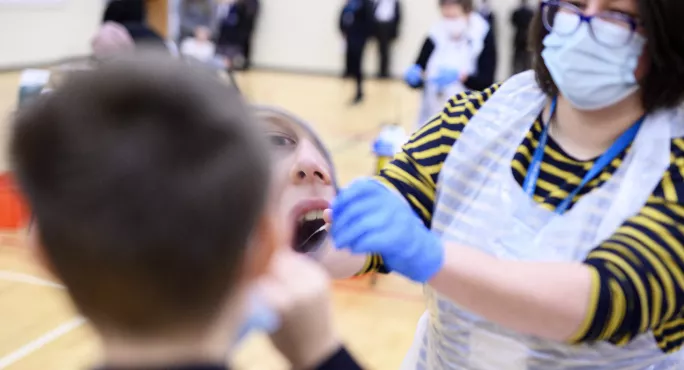If the government had acted more swiftly in the autumn of 2020 to slow the spread of Covid, school closures could have been avoided in January 2021, former health secretary Matt Hancock has said today.
Giving evidence to the UK Covid-19 Inquiry on Friday, he said that “on reflection and with hindsight” he thought “if we’d have taken action sooner, in September of 2020, then we might, for instance, have avoided the need to close schools, which in the end we had to as cases were so high by January”.
Mr Hancock added: “In the November lockdown we didn’t shut schools, and other than the emergence of the Kent variant, it did get R [the rate at the which the virus was able to spread] below one.
“So it shows the argument I was making then, sadly, turned out to be accurate, which is if you don’t lock down early, you have a tougher lockdown with more economic damage.”
Mr Hancock, who was health secretary during the pandemic, said that measures such as the rule of six people being allowed to meet as a group, and different restrictions in regional tiers, which were introduced to help stop the spread of Covid in the autumn of 2020, “didn’t go far enough”.
A national lockdown in November 2020 did not include schools but rising Covid cases during December led to a third lockdown - and a second involving schools in January 2021.
Covid: School closures in January 2021
Mr Hancock said: “By that stage because the case rates were so high, we unfortunately had to pull every lever, which included, unfortunately, having to close schools.”
The inquiry was also told that Mr Hancock had believed that the November lockdown - which did not include schools - had not been imposed early enough or go on for long enough.
Rising cases of Covid in December 2020 caused major tension between schools and government.
Two weeks before Christmas the Department for Education issued a legal order forcing Greenwich council to back down over plans for all schools in the area to close early for Christmas over Covid concerns. It was one of a number of councils that had attempted to move schools to remote learning in the weeks before the Christmas break.
In late December the DfE announced that all secondary schools would carry out Covid tests of their staff and students from the first week of January.
It also said that secondary schools would be going back in a staggered start, with the majority of year groups learning online in the first week of term.
However, the plan for January 2021 was that most primary schools would reopen as normal at the start of term.
Boris Johnson, prime minister at the time, appeared on TV to reaffirm this on the Sunday before the start of term, only for the government to then announce just a day later that the country was going into a full national lockdown, including schools.
The ongoing Covid-19 inquiry is hearing evidence from senior government figures at the time.
In October evidence was presented that suggested former education secretary Gavin Williamson opposed masks in schools during the pandemic because he was in “no surrender mode” with trade unions and “didn’t want to give an inch”.
The comments came from a WhatsApp message from cabinet secretary Simon Case to the prime minister’s then chief adviser Dominic Cummings, in August 2020, submitted as evidence to the UK Covid-19 inquiry.




